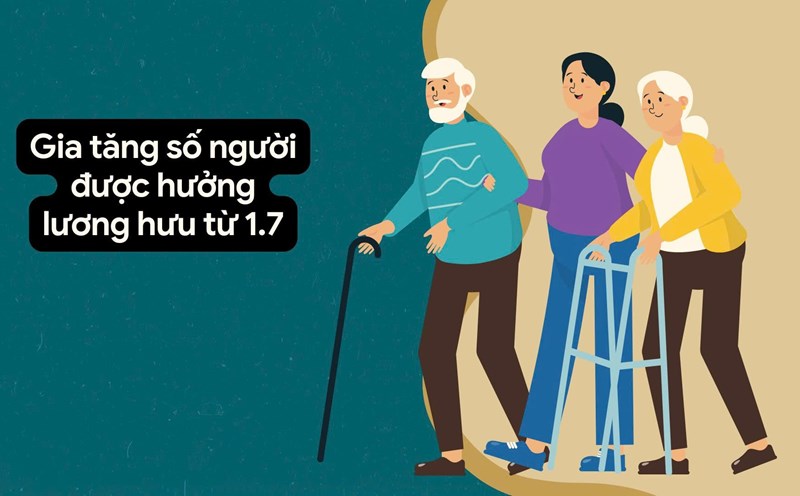Ms. Mai used to be a worker in a garment factory, retiring in 1994 after more than 25 years of work. At that time, the social insurance regime had not been fully developed as it is today.
"At that time, the salary was low, social insurance was paid little, so now the pension is also low. But prices are rising steadily. I'm old but still have to work extra, it's a pity" - she shared.
Currently, the minimum wage in Thanh Hoa City is 4,410,000 VND/month, Ms. Mai's pension is still far from the minimum living standard. She hopes that from July 1, those who retired before 1995 will have their pensions increased to make life more comfortable when they are old.
Mrs. Mai's story is not unique. According to statistics from Vietnam Social Security, the whole country currently has nearly 3.4 million people receiving monthly pensions and social insurance benefits.
Although the average pension in 2024 is about 6.2 million VND/month, the gap between retired groups is huge.
Many people who retired before 1995 or have paid social insurance for a short time, currently only receive a salary of VND3.3-3.5 million, even lower than the regional minimum wage.
Ms. Vu Thi Ngo, 71 years old, formerly a rubber farm worker, retired in 1993 with a current pension of 2.8 million VND, expressed: "There is every salary increase, but low-penters like me do not deserve to increase".
In recent years, pensions have been adjusted many times, with a total increase of 21 - 26 times compared to 1995. However, the gap between long-time retirees and new retirees is still very large. This inadequacy leads to consequences for social security, when a large part of the elderly have to live in hardship and poverty.
The 2024 Social Insurance Law will take effect from July 1, 2025 - expected to be a big step forward in ensuring fairness for pensioners.
The law clearly stipulates: Adjust the pension increase appropriately for those with low pensions and those who retired before 1995 to ensure narrowing the gap between retirees in different periods.
This adjustment will be based on the consumer price index, the capacity of the State budget and the Social Insurance Fund.
Returning to the story of Mrs. Mai - a woman who is used to being frugal, still hoping for a day without having to run around work every morning: "I don't need much, just enough food, enough medicine and not having to ask for children and grandchildren is enough to satisfy".
Increasing pensions for low-income recipients is not only a number in policy documents but a buoy to help hundreds of thousands of elderly people feel secure in their late teens.











